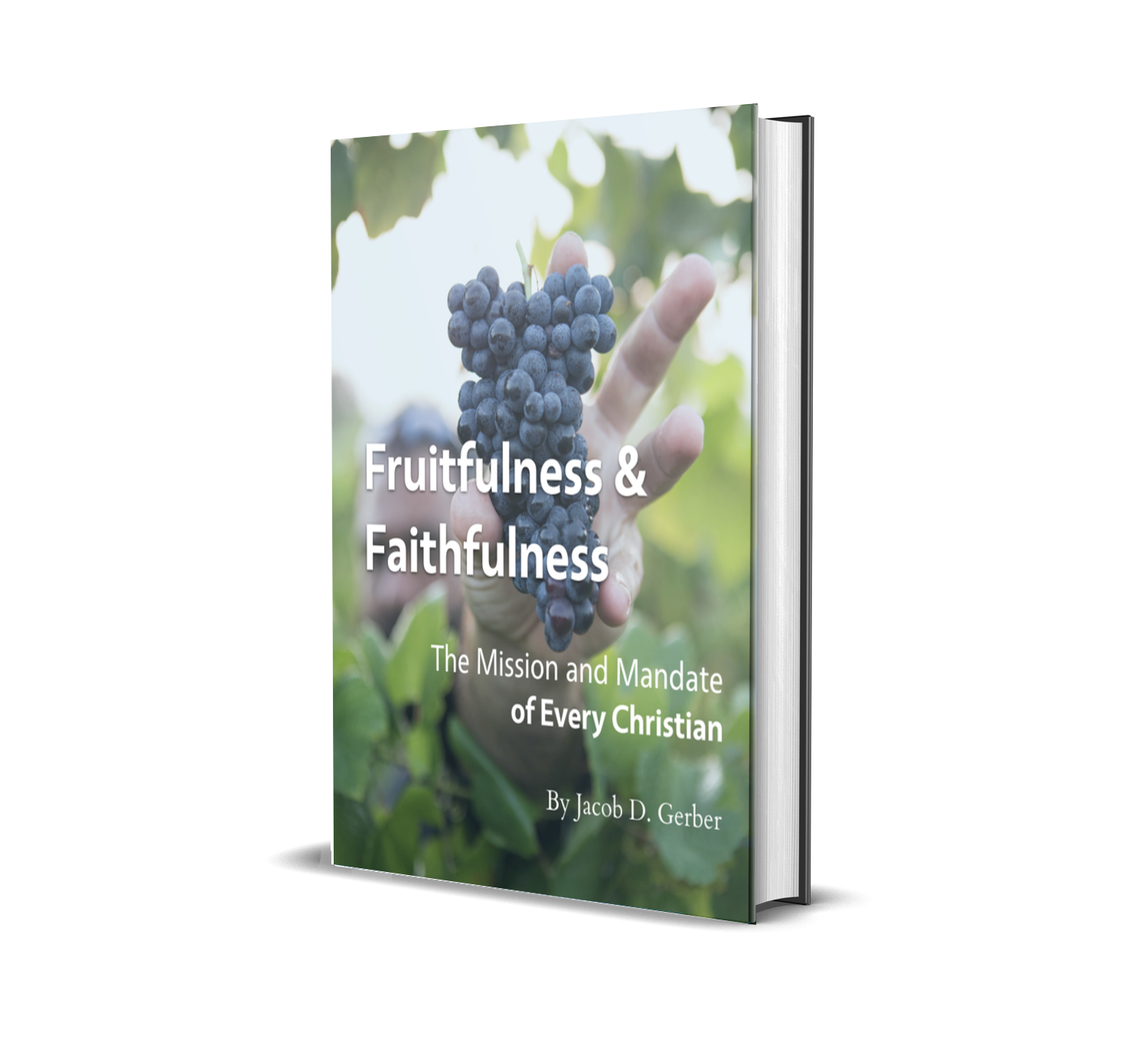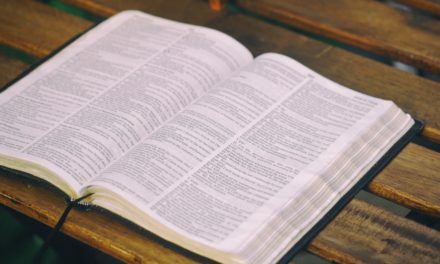Becoming What You Are vs Remaining What You Were (1 Corinthians 5:6–8)
When Paul urges the Corinthian church to “celebrate the festival” in 1 Corinthians 5:8, he is encouraging them toward becoming what they are in Christ. That is, Christ has already died to sanctify them (make them holy), so now Paul is calling to them live out their calling as saints—that is, as holy ones (cf. 1 Cor. 1:2).
The Feasts of Passover and Unleavened Bread
To make this point, Paul draws on the old covenant festivals of Passover and Unleavened Bread. Here is a brief overview of the meaning and observance of these festivals:
- At the original Passover feast, God passed through Egypt to strike down every firstborn in their midst, but he passed over his people when he saw the blood of the Passover sacrifice on their doorframes (Ex. 12:1–20). For this reason, Israel remembered Passover as a day of God’s great redemption and deliverance for their people, when they ate unleavened bread in their haste to leave Egypt (Deut. 16:3).
- Every year after that, Israel commemorated the original Passover on the twilight on the 14th day of the first month, beginning with the sacrifice of the Passover lamb (Lev. 23:5). For the next seven days, Israel could only eat unleavened bread (Ex. 12:18–19).
- The Passover, then, transitioned seamlessly into the Feast of Unleavened Bread, which began officially on the 15th day of the first month (Lev. 23:6). During this time, Israel could neither eat anything leavened nor even keep any leaven in their homes.
In 1 Corinthians 5:6–8, Paul demonstrates how these festivals point forward to Christ:
- Christ is our ultimate Passover lamb who was sacrificed for us (1 Cor. 5:7). He has sanctified us by his blood, so that the wrath of God passes over us.
- We are now living, then, in an ongoing Feast of Unleavened Bread, where we must purge any spiritual leaven (that is, corrupting sin) from our midst to live holy lives: “Let us therefore celebrate the festival, not with the old leaven, the leaven of malice and evil, but with the unleavened bread of sincerity and truth” (1 Cor. 5:8).
It is not that we purge evil from our lives in order to become holy, for only Christ can make us holy as our ultimate Passover sacrifice. Instead, as Gordon Fee points out, we must become what we already are:
The death of Christ makes them new; yet they must get rid of the old in order to be new, precisely because in Christ they already are new! Thus no “do in order to be,” but “do because you are.” (Fee, The First Epistle to the Corinthians, rev. ed., 236.)
Christ our Passover Lamb has been sacrificed—let us keep the feast!
Becoming What You Are: Pursuing our Calling
By seeking to become what we are, we hold two principles in tension. First, we affirm that Christ has died to sanctify us as holy. By his blood, he has not only protected us from the wrath of God and justified us as righteous in God’s sight. More than that, he has cleansed us and set us apart as holy and sanctified.
Second, we acknowledge that we have much more sanctification left to go. While justification completely and perfectly pardons us of our sin and imputes to us Christ’s righteousness, so that we may never fall into condemnation, sanctification gradually and increasingly subdues sin and infuses in us Christ’s holiness so that we grow toward perfection—even though we will not reach that goal in this life (WLC 77).
Sanctification as Identity and Calling
Paul gets at these two ideas in the second verse of 1 Corinthians: “To the church of God that is in Corinth, to those sanctified in Christ Jesus, called to be saints together with all those who in every place call upon the name of our Lord Jesus Christ, both their Lord and ours” (1 Cor. 1:2).
As an identity, the church of Jesus Christ is already sanctified in Christ Jesus. They have been rendered sacred and consecrated to the service of God through faith in Christ Jesus (Hodge, A Commentary on 1 & 2 Corinthians, 3). That is, by Christ’s sacrificed, they have already been made into a new, unleavened lump of dough: “as you really are unleavened” (1 Cor. 5:7).
As a calling, the church of Jesus Christ must grow in their sanctification. The Westminster Larger Catechism defines this ongoing process of sanctification in this way:
Sanctification is a work of God’s grace, whereby they whom God hath, before the foundation of the world, chosen to be holy, are in time, through the powerful operation of his Spirit applying the death and resurrection of Christ unto them, renewed in their whole man after the image of God; having the seeds of repentance unto life, and all other saving graces, put into their hearts, and those graces so stirred up, increased, and strengthened, as that they more and more die unto sin, and rise unto newness of life. (WLC 75)
Pursuing our Calling
On the basis of our identity, Paul urges us in 1 Corinthians 5:6–8 to pursue our calling. We have been sanctified in Christ Jesus; how, then, can we neglect living out our calling to be saints?
By the grace of God, we must increasingly die to sin by purging our old sin patterns from our lives. Furthermore, we must pray for the Holy Spirit to give us the fruit of lives shaped by his influence:
[22] But the fruit of the Spirit is love, joy, peace, patience, kindness, goodness, faithfulness, [23] gentleness, self-control; against such things there is no law. [24] And those who belong to Christ Jesus have crucified the flesh with its passions and desires. (Gal. 5:22–24)
The old covenant festivals were shadows of a much greater spiritual reality. In the new covenant, we celebrate the Feast of Unleavened Bread by growing in the holiness purchased for us by the sacrifice of Christ, our Passover lamb.
Remaining What You Were: Presuming upon our Identity
The chief alternative to becoming what we are, then, is to remain what we were. When we remain what we were, we do not pursue the calling given to us. Rather, we presume upon the identity we have received as the sanctified people of God.
The Works of the Flesh
So, instead of thoroughly removing every remaining vestige of the spiritual leaven of malice and evil, we continue to live according to the unholy works of the flesh:
[16] But I say, walk by the Spirit, and you will not gratify the desires of the flesh. [17] For the desires of the flesh are against the Spirit, and the desires of the Spirit are against the flesh, for these are opposed to each other, to keep you from doing the things you want to do. [18] But if you are led by the Spirit, you are not under the law. [19] Now the works of the flesh are evident: sexual immorality, impurity, sensuality, [20] idolatry, sorcery, enmity, strife, jealousy, fits of anger, rivalries, dissensions, divisions, [21] envy, drunkenness, orgies, and things like these. I warn you, as I warned you before, that those who do such things will not inherit the kingdom of God. (Gal. 5:16–21)
How We Justify Remaining What We Were
We might use many different excuses for remaining what we were, rather than pursuing our calling to live as saints. For example:
“That’s just how I am.”
Certainly, your sin characterizes the way that you were, but Christ has made you new by his sacrifice. Cleanse out the old leaven so that you do not remain what you were.
“That’s an area where I ‘struggle.'”
When we say this, we aren’t usually describing an active struggle, but a passive struggle. That is, we are not really struggling to put our sin to death in order to live our new life in the power of the Holy Spirit. Rather, our consciences are struggling with guilt over our lack of effort.
“I don’t want to be legalistic.”
Legalism and obedience are entirely different things. Legalism means making and enforcing rules that go beyond what God has commanded in his word. Ultimately, Satan uses legalism to lead us into disobedience. On the other hand, Jesus insists that if you love him, you will do what he commands (John 14:15).
Let Us Celebrate the Festival!
How about you, then? Do you depend entirely on the sacrifice of Jesus Christ to cleanse you of your sin? If so, then do you also pursue the calling to which he has consecrated you, to live as a saint?
Cleanse out whatever remains of the spiritual leaven in your life, leading you back into old patterns of sin. Do you know that Christ created you to be a fresh, holy, new lump of dough for his holy use?
If so, then let us celebrate the festival!
FREE eBook: Fruitfulness and Faithfulness: God’s Mission and Mandate of Every Christian
Grow in God’s Plan for Your Fruitfulness and Faithfulness

Invest Your Life Well
Discover God’s breathtaking vision for the fruitfulness of his people.
Learn how to live fruitfully and faithfully in the kingdom of Jesus.
Download the free eBook now.
Get the eBook
Bonus: You’ll also get a discipleship assessment tool to evaluate areas for you to grow in fruitfulness and faithfulness.




